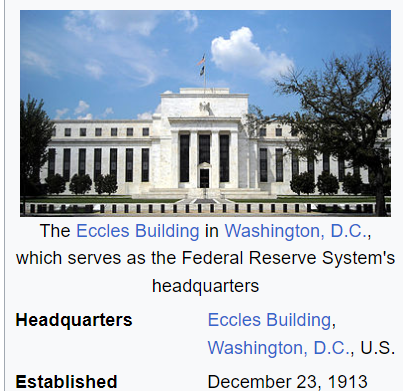"According to a recent Federal Reserve report, an international agreement reached in the 1990s mandates, need a new system banking regulations. These modifications aim to align national policies with globally established standards. Despite long-standing opposition from influential banking institutions, the proposed changes are expected to take effect by the end of the year. The reforms primarily focus on restricting banks' lending capabilities, ensuring they conform to universal guidelines. It is crucial for the Federal Reserve to have a strong leader who can resist pressure from powerful financial institutions and safeguard the stability of America's financial system."
The integration of the international financial system has led to large, globally active firms operating within a system of national government and regulation. While there is no realistic prospect for a global banking regulator, the responsibility and authority for financial stability continue to rest with national or regional authorities. The challenge lies in effectively sharing oversight of these large firms among regulators. Varying forms of regulation across countries are reasonable, considering different economic circumstances, currencies, and levels of depth and development in banking and capital markets. Even between the United States and the European Union, legitimate differences exist within the broader convergence around minimum regulatory and supervisory standards developed at various forums.
The financial crisis exposed vulnerabilities created by foreign banking operations, and the Basel Committee and national regulators were slow to respond to the expansion in scale and scope of the world’s largest banking organizations. Addressing these vulnerabilities requires thoughtful coordination and effective supervision of international activities by U.S. banking organizations.
In summary, the Federal Reserve’s role in regulating international banking activities is critical, and strong leadership is essential to navigate the complexities of global financial systems and ensure stability.
The integration of the international financial system has led to large, globally active firms operating within a system of national government and regulation. While there is no realistic prospect for a global banking regulator, the responsibility and authority for financial stability continue to rest with national or regional authorities. The challenge lies in effectively sharing oversight of these large firms among regulators. Varying forms of regulation across countries are reasonable, considering different economic circumstances, currencies, and levels of depth and development in banking and capital markets. Even between the United States and the European Union, legitimate differences exist within the broader convergence around minimum regulatory and supervisory standards developed at various forums.
The financial crisis exposed vulnerabilities created by foreign banking operations, and the Basel Committee and national regulators were slow to respond to the expansion in scale and scope of the world’s largest banking organizations. Addressing these vulnerabilities requires thoughtful coordination and effective supervision of international activities by U.S. banking organizations.
In summary, the Federal Reserve’s role in regulating international banking activities is critical, and strong leadership is essential to navigate the complexities of global financial systems and ensure stability.
"According to a recent Federal Reserve report, an international agreement reached in the 1990s mandates, need a new system banking regulations. These modifications aim to align national policies with globally established standards. Despite long-standing opposition from influential banking institutions, the proposed changes are expected to take effect by the end of the year. The reforms primarily focus on restricting banks' lending capabilities, ensuring they conform to universal guidelines. It is crucial for the Federal Reserve to have a strong leader who can resist pressure from powerful financial institutions and safeguard the stability of America's financial system."
The integration of the international financial system has led to large, globally active firms operating within a system of national government and regulation. While there is no realistic prospect for a global banking regulator, the responsibility and authority for financial stability continue to rest with national or regional authorities. The challenge lies in effectively sharing oversight of these large firms among regulators. Varying forms of regulation across countries are reasonable, considering different economic circumstances, currencies, and levels of depth and development in banking and capital markets. Even between the United States and the European Union, legitimate differences exist within the broader convergence around minimum regulatory and supervisory standards developed at various forums.
The financial crisis exposed vulnerabilities created by foreign banking operations, and the Basel Committee and national regulators were slow to respond to the expansion in scale and scope of the world’s largest banking organizations. Addressing these vulnerabilities requires thoughtful coordination and effective supervision of international activities by U.S. banking organizations.
In summary, the Federal Reserve’s role in regulating international banking activities is critical, and strong leadership is essential to navigate the complexities of global financial systems and ensure stability.
1 التعليقات
0 المشاركات
3كيلو بايت مشاهدة




